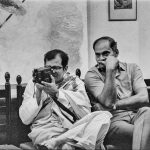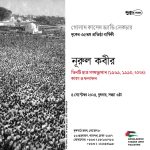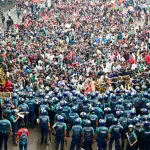

-
UK linked to notorious Bangladesh torture centre
Subscribe to ShahidulNews Exclusive : British authorities pressed for information…
-
Latest Posts
Categories
- 1971
- Afghanistan
- Arts
- Bangladesh
- Capitalism
- Caretaker government
- Censorship
- China
- Chittagong Hill Tracts
- Chobi Mela
- Chobi Mela VII
- Coal
- Colonialism
- Consortium government
- Corruption
- COVID 19
- Crossfire
- culture
- Current News Photos
- Democracy
- development
- Disappearances
- disasters
- Drik and its initiatives
- Drik DNA
- Drik's Network Partners
- Drugs
- economy
- Education
- Elections
- Energy
- environment
- exploitation
- features
- Film
- Garments
- Gas
- Gender
- Genocide
- Global Issues
- Governance
- guimet
- Health
- History
- Human rights
- Humour
- Immigration
- Imperialism
- India
- Interesting sites
- Interviews
- Interviews and Features
- Islam
- Kalpana Chakma
- Killings
- Law
- lectures
- literature
- Major Features on Bangladesh
- Majority World
- media
- Media issues
- Migration
- Military
- mining
- Mir Jafar
- Monarchy
- Music
- My Photo Essays
- Nepal
- New Age
- New Media
- News Archives
- News Photo Archives
- Nuclear
- Occupation
- Oil
- Pakistan
- Partition
- Pathshala
- People
- Personal
- Photography
- Photojournalism
- Photojournalism issues
- photojournalist
- politics
- Poverty
- RAB
- Rahnuma Ahmed
- Religion
- Resistance
- Reviews
- Science
- security
- Shahidul Alam
- Sheikh Hasina
- short stories
- Sites of Drik and Pathshala photographers
- South Asia
- Southern Exposure
- Sports
- Sri Lanka
- surveillance
- Taliban
- Technology
- Terrorism
- Transport
- UK
- Uncategorized
- USA
- Violence
- War
- war on terror
- Water
- World
Tags
1971 Art Arts Bangladesh book censorship Chobi Mela Chobi Mela VII culture Death democracy Dhaka Drik education Elections exhibition Festival garments Gaza Genocide Governance history Human rights India Israel Journalism Law literature Majority World media Military Pakistan Palestine Pathshala Photography Photojournalism politics Rahnuma Ahmed resistance Shahidul Alam USA Violence Visual Arts War War Crimes



